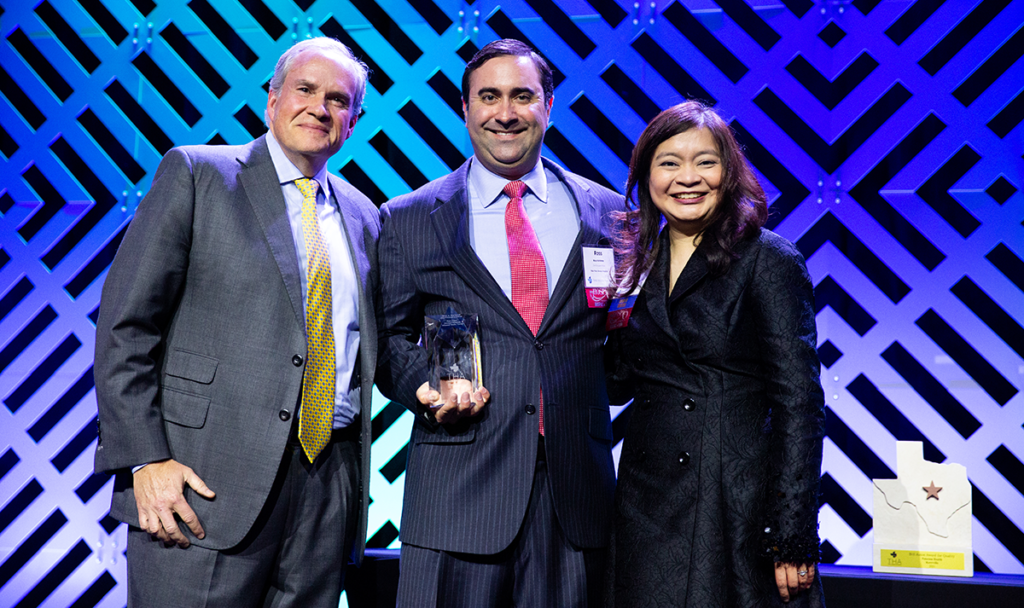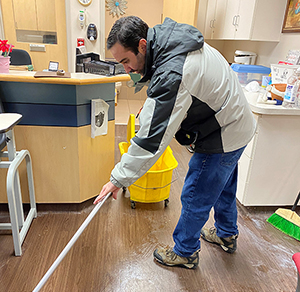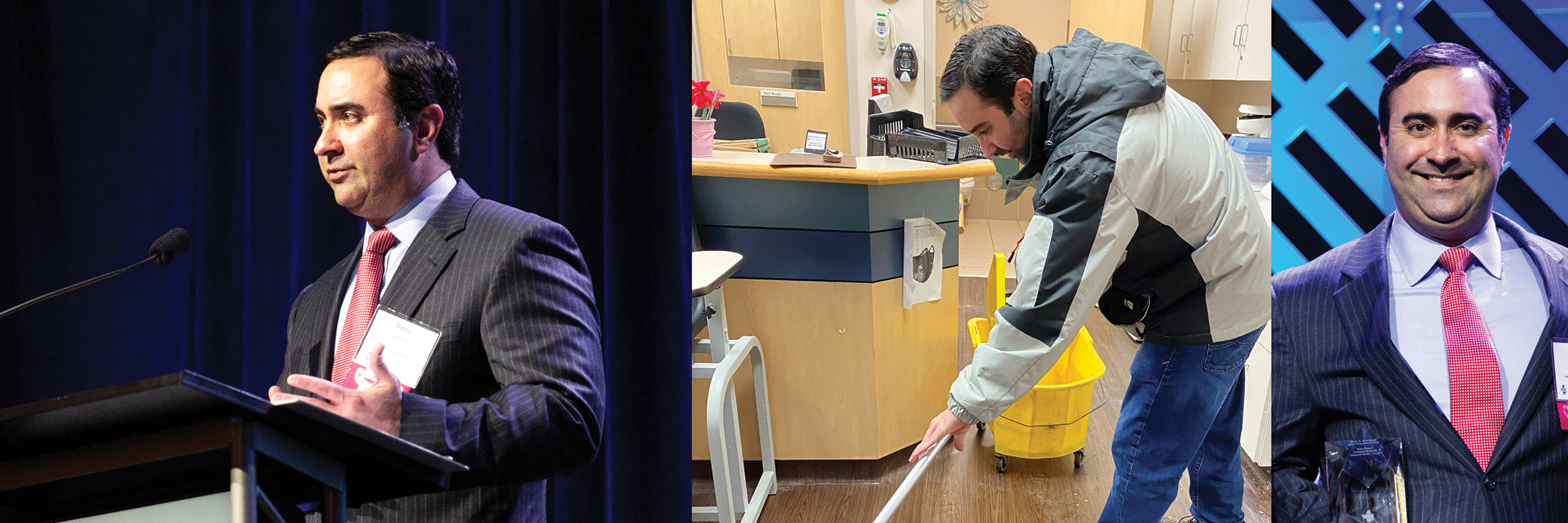Every year, THA awards a CEO or administrator of a rural hospital with the Pioneer Award in recognition of their innovative management achievements and leadership within their organization and community.
The 2021 Pioneer Award winner, Ross Korkmas, is the CEO of Palo Pinto General Hospital (PPGH), a 74-bed hospital in Mineral Wells, Texas.

Korkmas joined Palo Pinto General Hospital in 2019 and has proven to be a transformational leader in just two years. During a time when many hospitals, particularly ones in rural areas, were struggling, Korkmas brought growth to the organization. Since taking the reins at PPGH, Korkmas added multiple new physicians and hospital services at Palo Pinto General Hospital. Some of which include an inpatient tele-pulmonary/critical care program, a school-based telehealth program, infectious diseases specialist program, urology, pediatric clinic and a pain management clinic.
By the end of 2021, the ever-expanding hospital also added a new primary care clinic to its system.
Korkmas is regarded as an equally efficient and caring servant leader who is always looking to better the culture of the hospital and listen to new ideas. His colleagues and staff describe him as “the guy who makes the big decisions, signs on the bottom line for major business dealings, but also sweeps the floor in the ER when staff are spread thin and texts staff on the weekends to check on their sick children.”
Learn more about the challenges he faced and lessons learned over the past few years.
What drove you to pursue a career in the health care industry?
I didn’t take the traditional path into health care. I would say that health care found me. Many years ago, I was casually looking for a new career and stumbled across a job at a hospital that seemed interesting. I interviewed, got the job, and within three weeks of being there, I knew I wanted to stay in the health care field. I have always had a passion for helping people, and once I found health care, I fell in love with it. I can’t do what our clinicians do, but I can help get them the tools and resources they need to care for our patients.
What were some of the early COVID-19 challenges for your leadership?
I was still relatively new to Palo Pinto General Hospital when COVID-19 hit. I was still learning about the hospital and our community, which added a little bit of personal challenge. Another challenge was redesigning some of our units and workflow to accommodate COVID-19 patients. Transitioning employees to work remotely was new for all of us. We worked together to find the right mix of remote and onsite staffing.
During the pandemic, how did you keep morale high in your hospital? How have you maintained it?
I am not sure that we were always able to keep morale high. Many times we were in survival mode and just had to try and keep our patients and staff safe. We had to cancel our employee Christmas party in 2020. To keep morale high we implemented “12 Days of Christmas” to ensure employees still received gifts, were well-fed and felt appreciated. We worked hard to recognize our employees as health care heroes from both clinical and non-clinical departments, and we had amazing community support. We continue to recognize and reward our fantastic team.
What major changes did your organization make during the pandemic that will continue in the future?
The most significant change we made that has continued is the implementation of telemedicine. The telemedicine initiative leverages technology to improve patient care.
We partnered with a great organization to add tele-intensivists/pulmonologists, tele-infectious disease, and added night tele-hospitalists to support our clinicians and improve patient care. Implementing a robust telemedicine program has been a game-changer for us and it’s here to stay.
Have the events of the past two years changed your perception of what it means to be a health care leader?
One thing that has changed for me personally is embracing social media to help deliver important communications along with traditional messaging. Our utilization of social media for education and messaging enabled us to reach a broader audience. Partnering with our Palo Pinto County League of United Latin American Citizens helped us reach a broader audience and helped me better understand the community we serve. I would also say the need to be flexible has always been a must for health care leaders, but COVID-19 really taught me how to be flexible.
I think COVID-19 also reinforced the importance of working together between the medical staff, front-line staff, and hospital leadership. If we work together and not against each other, we can accomplish a great many things!

“I have always had a passion for helping people, and once I found health care, I fell in love with it. I can’t do what our clinicians do, but I can help get them the tools and resources they need to care for our patients.”

